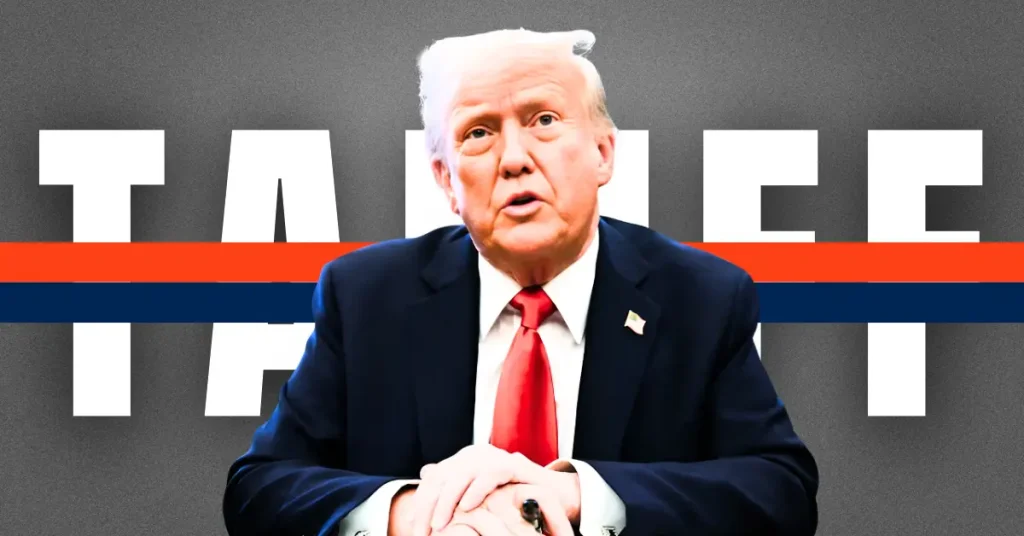ARTICLE AD BOX

The post How Trump’s Tariffs Are Impacting the Crypto Market? appeared first on Coinpedia Fintech News
In early April, U.S. President Donald Trump imposed new import tariffs targeting countries with the largest trade surpluses with America. The impact was immediate—between April 2 and 8, the total crypto market cap plunged by 11.63%.
As global trade tensions rise, tariffs are no longer just an economic weapon. They’re becoming a major source of volatility across financial markets—crypto included.
Here’s how tariffs affect the crypto space and what investors should watch.
What Are Tariffs?
Tariffs are taxes levied on imported goods, used by governments to protect domestic industries from foreign competition. For example, if the U.S. imposes a tariff on steel, foreign steel becomes more expensive, giving local producers a pricing edge.
How Tariffs Disrupt the Global Economy
Tariffs are risky tools that often backfire:
- Retaliation: After Trump’s recent tariff announcement, China immediately imposed counter-tariffs, escalating trade tensions.
- Consumer Cost: Importers usually pass tariff costs to consumers, fueling inflation.
- Supply Chain Disruption: Industries that rely on global imports—like tech and manufacturing—suffer the most.
- Trade Slowdown: Tariffs curb international trade, dampen global growth, and create prolonged uncertainty.
Tariffs and Their Ripple Effect on Crypto Markets
1. Market Uncertainty:
Investors tend to exit risky assets like crypto during uncertain times, shifting to gold or U.S. bonds. This risk-off behavior drives crypto prices down.
2. Inflation & Interest Rates:
Tariffs often trigger inflation. In response, central banks may hike interest rates—tightening liquidity and choking the capital flow into volatile assets like crypto.
3. Sell-Offs:
Following Trump’s tariffs, crypto markets saw an 11.63% decline in under a week. Sharp sell-offs often accompany these announcements due to fear and reduced investor confidence.
4. Mining Cost Surge:
Crypto mining depends on global hardware imports. Tariffs raise costs for miners, potentially impacting network security and decentralization.
Hidden Opportunities for Crypto
Stablecoin Growth:
In countries experiencing currency devaluation from tariff-induced inflation, users often turn to stablecoins to preserve value—boosting adoption.
Volatility Trading:
Tariff news causes market swings. Traders exploit this with strategies like options straddles and pair trades, profiting from volatility on both sides.
Final Take
Tariffs may not directly target crypto, but their indirect impact is profound. From spiking inflation to supply chain disruptions, they inject fear and reduce liquidity—conditions that typically stall crypto market growth. However, for stablecoins and savvy traders, tariffs can also present strategic opportunities.
Never Miss a Beat in the Crypto World!
Stay ahead with breaking news, expert analysis, and real-time updates on the latest trends in Bitcoin, altcoins, DeFi, NFTs, and more.
.png)
 1 month ago
3
1 month ago
3








 English (US)
English (US)